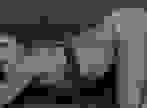- Romance
- The Assistant
Note: You can change font size, font face, and turn on dark mode by clicking the "A" icon tab in the Story Info Box.
You can temporarily switch back to a Classic Literotica® experience during our ongoing public Beta testing. Please consider leaving feedback on issues you experience or suggest improvements.
Click here‘We’re sending you an assistant.’
‘An assistant?’
‘We need you to work with us here, Paddy. You -- that is to say we -- because we’re all in this together -- have a bunch of readers just dying to read your next book. But they won’t wait for ever. We need to get the new book out by mid-October. At the latest. And I do mean at the latest.’
‘This assistant ....’
‘Jerome,’ Henry said. ‘His name’s Jerome.’
‘Jerome. What’s he going to do? Is he going to write the bits that no one bothers to read? A bit like the renaissance painters’ assistants taking care of the less-important background drapery?’
At the other end of the telephone, Henry was starting to sound just a touch tetchy. ‘He can help you with some of the non-writing bits that seem to keep distracting you from the actual writing. Research. Fact checking. Whatever else you need.’
‘Porn surfing?’
‘Please, Paddy. We have a window of opportunity here. But it is fast closing.’
‘An assistant? I’ve never had one of those before.’
‘He can also run errands for you. Collect your dry cleaning and things like that. The important thing is: we need you to focus on writing.’
‘Did Leonardo’s assistants collect his dry cleaning?’
‘He’ll be there tomorrow morning. About ten. In the meantime, maybe you could give some thought to what it would be helpful for him to do. I cannot stress how important this project is. To both of us.’
‘He’ll just get in the way,’ Patrick said. ‘I can’t work with people hanging around. You know that.’
‘You won’t even notice he’s there.’
And then, in the morning, Henry phoned again. ‘Sorry, Paddy. We have a slight change of plan. Jerome has had an accident. Fell off his motor scooter. One of those little putt-putt Vespa things. Something like that. Anyway, he’s in hospital. He’s broken something. Elenore is sending Terry instead. So, please ... try to mind your Ps and Qs.’
The woman who knocked on Patrick’s door later that morning looked as if she was canvassing for some wildlife conservation cause. She was dressed for the outdoors, and she was carrying some sort of satchel with badges. She also had a clipboard. Paddy was all for saving the rhino, even the rather lesser-known Hincklemann’s treefrog, but he was in mid-composition. After ... what was it, three days? -- he finally had a clear vision of what he wanted to say.
‘Go away, do-gooder lady,’ Patrick muttered as he glanced down from the first floor window of his study. ‘I’m busy.’ But do-gooder lady didn’t go away. Eventually, Patrick went downstairs and answered the door.
‘Hello. I’m Terry,’ the woman said. ‘I hope I haven’t disturbed you. Henry said that you would be expecting me.’
‘Oh. Terry?’
‘Terry.’
‘I was expecting a bloke.’
‘Jerome. Yes. Jerome had an accident. He’s in hospital. Broken leg, I think. Fell off his little motor bike thingy.’
Patrick nodded. ‘Look ... I don’t mean to sound ... well ... inhospitable, but this isn’t going to work. I’ve already told Henry that. When I’m writing, what I need most is peace and quiet. It’s why I live down here and not up in London.’
‘Oh? Are you writing? Henry seemed to think that you keep getting distracted by other things.’
‘Hmm. Maybe. Just a bit. Writing is not like an ordinary job.’
‘No,’ Terry said. But she clearly wasn’t about to go away.
‘I suppose you had better come in then,’ Patrick said.
Terry stepped through the front door and looked around for somewhere to put her bag.
‘Why are you wearing a parka?’ Patrick asked. ‘Is it cold out there?’
‘What? Oh. No. I thought I’d better bring one. Just in case. And it was just the easiest way to carry it.’
Patrick nodded again. ‘So ... how do we do this?’
‘How would you like to do this?’
‘What I’d like is for you to go and tell Henry that I can manage perfectly well without ...’ Patrick flapped his hand, ‘... without an assistant.’
‘I don’t think that’s going to work,’ Terry said. ‘Henry is definitely convinced that you need someone to give you a hand. Just with the non-writing stuff.’
‘Yeah, well, Henry worries too much.’
‘I think Henry sees worrying as part of his job. Now ... why don’t you just tell me what you need done, and I’ll do my best to do it.’
‘Do you make coffee?’
‘I can. Yes. Would you like some?’
‘I would. I’d love a coffee. But if I get you to make it, I’ll feel that I’m taking advantage of you. And then I won’t enjoy the coffee. Perhaps I should make you a coffee. How do you like it?’
‘Umm ... just with a splash of milk, thank you.’
Terry followed Patrick through to the kitchen and waited while he filled the squat whistling-kettle and put it on the gas hob. ‘I’m afraid it’ll have to be instant,’ he said. ‘I’ve run out of beans.’
‘Instant is fine,’ Terry said.
‘Do I need to find you a bed?’ Patrick asked.
‘Henry -- or someone -- has organised a room for me at The Crown.’
‘Right.’ Patrick placed a couple of coffee mugs on the countertop and added a seriously-heaped spoonful of instant coffee to each. ‘Terry? Is that your real name?’
‘Teresa. But everyone calls me Terry. Well ... everyone but my mother.’
‘OK.’
Terry unzipped her satchel-cum-laptop bag and removed a bright yellow spiral-bound exercise book. She leafed through the book until she came to a clean page and started to write Patrick Curran at the top. ‘Henry calls you Paddy,’ she said.
‘Yes. Patrick. Paddy. My mother calls me Padraig.’
‘What should I call you?’
‘Paddy works for me,’ Patrick said. ‘But it’s up to you. So ... what’s your job at Valiant?’
‘Umm ... not entirely sure. At the moment, I’m .... What is it that actors say? Resting between roles?’
‘Oh? And what was your last role?’
‘I tried my hand at being a novelist.’
Patrick looked surprised. ‘Oh. A novelist. A fellow scribbler. And how did that turn out?’
‘A bit of a mixed result. One of the early reviewers said that he would not be surprised to see Rainbow’s End at least long-listed for the Booker. But, from there, it was pretty much all downhill.’
Patrick nodded.
‘I think I focussed too much on the writing and not enough on the story.’
‘The story?’
‘Yes. If you want to make any money as a writer, if you want to write commercial fiction, you had better tell a good story. Eighty, ninety, a hundred thousand words arranged into beautifully-crafted sentences don’t count for a lot with the average reader. They just want to know what happens. And then what happens next. The reason that Dan Brown and E L James -- and a few others -- can get away with patches of rather average prose is because their readers don’t really care. They just want to know what happens next.’
Patrick frowned slightly. ‘Really? That’s a bit harsh, isn’t it?’ But then he nodded. ‘But, yeah. I suppose you could be right. That does seem to play a part, doesn’t it?’
‘So, what can I do for you?’ Terry asked.
‘Henry said that you could collect my dry cleaning.’
‘Yes. I can do that.’
‘Not that I have any dry cleaning,’ Patrick said.
‘Well, that might be a little more difficult then.’
‘Look, what I really need is two or three hours of peace and quiet,’ Patrick said. ‘I don’t wish to seem ungrateful. It’s not your fault that Henry has this bee in his bonnet. But I can see the next couple of thousand words. And I just need to get them down on the page before they fade away.’
Terry nodded and glanced at her watch. And then she walked across the kitchen and opened the door to the fridge. ‘What would you like for lunch?’ she said.
‘When I’m working, I tend not to bother too much with lunch,’ Patrick said.
‘Maybe a bit of lunch would help you to keep focussed,’ Terry said.
‘Supper is the meal that I look forward to.’
Terry frowned slightly. ‘OK. In that case, what would you like for supper?’
‘Well, I’m Irish, and it’s Friday, so I’ll probably wander down to the market shortly, and see if I can find some fish.’
‘Instead of writing,’ Terry said. And she laughed. ‘You get back to your keyboard and I’ll get some fish. Any requests?’
Patrick shook his head. ‘Your call,’ he said. ‘I assume you’ll be sharing?’
‘I could do. If I’m invited.’
‘Well, you don’t seem inclined to go back to London.’
They finished their coffee -- well, Patrick finished his; Terry found the brew a bit tarry for her tastes -- and then Patrick headed back upstairs to his keyboard and Terry rinsed the coffee mugs before heading for the market.
‘Oh, I should give you some money,’ Patrick called out.
‘It’s OK. Henry gave me some pocket money. We’ll use that.’
By the time that Terry got to the market, the fish stall was looking a bit fished out. She bought a couple of salmon steaks. And then she went and bought a couple of limes, some spring onions, some garlic, some ginger, and some chillies. She also bought a packet of dried noodles and a tin of coconut milk. Patrick had said that he didn’t bother too much with lunch, but there was a stall selling rather delicious-looking chicken salad sandwiches on freshly-baked ciabatta. Terry bought two. There was also a coffee stall selling freshly-roasted coffee beans. She bought some. She also bought a flat white coffee and went and sat on the low harbour wall to drink it. It would give Patrick -- Paddy -- a bit more time to himself.
When Terry got back to the cottage, Patrick was pacing about with several A4 pages in one hand, muttering to himself. ‘Oh. You’re back. How did you go?’ he asked. ‘Was there any fish left? I should have mentioned: they sometimes sell out. I hadn’t realised how late it was. Sorry.’
‘There was squid. And there was salmon. That was about it. So I got us a couple of salmon steaks.’
‘Excellent,’ Patrick said. ‘I like salmon. Although squid would have been OK too.’
‘And how did you get on?’
‘I’m not sure. I did what I set out to do, but now I’m not so sure. Perhaps you should read it and see what you think.’
Terry smiled. ‘You want me to read it?’
‘It might be helpful,’ Patrick said.
‘You don’t think that you should send it through to Diana? She’s your editor.’
‘No. I think I’d prefer you to read it. If I send it to Diana, we’ll have to talk.’
‘And if I read it?’
Patrick half-smiled and grunted.
Terry took her market purchases through to the kitchen, put the salmon in the fridge, and then returned to the living room where Patrick was still pacing and muttering. He reordered the pages and handed them over to Terry.
‘I know that you said you don’t really bother with lunch,’ Terry said, ‘but I bought a couple of chicken salad sandwiches. And some coffee beans. Perhaps you could ....’
‘Oh. Yes. Right,’ Patrick said.
Terry had just finished reading through the printed pages when Patrick returned with the sandwiches and a pot of coffee.
‘Well?’ he said. ‘What do you think?’
For a moment or two, Terry said nothing. And then she said: ‘It’s ... umm ... it’s very nice writing. Very nice writing. But ....’ Terry paused. ‘It’s not exactly telling a story, is it? Perhaps it’s just me, but I don’t feel any need to know what happens next. I am more than happy to just let the words wash over me. As I say ... perhaps it’s just me.’
‘No,’ Patrick said. ‘No. I think you’re right. I think that was my worry too.’
‘Maybe you do need to get Diana’s opinion. Get her thoughts.’
Patrick shook his head. ‘I was trying to get across the idea that Oliver Gainsworth is not just a dumb plod who gets lucky. He gets lucky because he thinks unconventionally,’ he said.
‘Yes. I can see that,’ Terry said. ‘But I can also see several thousand of your loyal fans skipping ahead to find the next bit of action. The next encounter between brain and brawn. The next ... well ... the next thing that happens next? I wouldn’t deep-six what you’ve written. It’s very good. But is it right for the next Oliver Gainsworth book?’
‘This coffee’s very good,’ Patrick said.
Terry smiled and took a bite from the chicken salad sandwich.
‘When you were writing your novel,’ Patrick said, ‘how did you go about it? Did you write an outline? Did you develop character sketches? Did you start at the beginning? Or did you start at the end and work backwards?’
‘No, I didn’t do an outline. Although perhaps I should have. I knew the beginning. I knew the end. And I knew that I had a couple of engaging characters. But I’m not sure if their intersection amounted to enough of a story. It gave me, the author, an opportunity to think ... and talk ... but, looking back, I’m not sure that I told a story.’
Patrick nodded. ‘These sandwiches are very good,’ he said.
‘I take it your novel has a story?’ Terry said.
‘Yeah. Well ... I think so. It’s essentially a whodunnit ... so, yes.’
‘Do you want to give me the campfire version?’ Terry said.
Paddy frowned. ‘Yeah. Why not?’ And, pacing around the small living room, he told Terry a story.
When Paddy reached the end, Terry gave him a round of applause. ‘I like it. Yes. I like it a lot. I like the story. And I like the way in which the character of Gainsworth shapes the story, and the story, in turn, shapes Gainsworth. And there are ingenious twists and turns aplenty. I particularly like the idea of the painting being swapped out. That’s very clever. And I like the idea of the bad guys doing their best to appear like upright pillars of society. But ....’ (Terry somehow managed to turn ‘but’ into a two-syllable word.)
The ‘but’ was that, having sat beside the campfire, having listened, having watched the shadows come and go, Terry was now even less convinced that Paddy’s beautifully-written digression into the philosophical nature of property ownership and theft added anything to the story. ‘Of course, it might get you onto the Booker Prize shortlist,’ she said. ‘But I think Henry is hoping for a wham-bam commercial success. Unless I completely misunderstood him, he’s looking for an even bigger and better follow-up to All the Red Herrings. Like it or not, publishing is a joint venture, Paddy. As I’m sure you know. And as I discovered.’
Patrick nodded. ‘I may need to rethink a couple of bits,’ he said.
‘And what can I do?’
‘For the moment ... nothing.’
‘OK. In that case, I’ll get out of your hair. What time do you like to eat supper?’
‘Normally about seven.’
‘I shall be back about five-thirty,’ Terry said.
Terry was on her way back to The Crown when Henry phoned. ‘Can you speak?’
‘I can,’ Terry said.
‘And what do you have to report?’
‘That your champion author has eaten a healthy lunch and is now, once again, with his nose to the grindstone.’
‘Oh?’ Henry sounded pleasantly surprised. ‘Good. Yes. Good. I wasn’t expecting that.’
Terry didn’t think that it was necessary to mention that Patrick -- Paddy -- had gone off piste in search of a Booker Prize for a while there.
‘Well ... keep up the good work,’ Henry said.
As promised, Terry returned to the cottage at five-thirty. Patrick was still tapping away at his keyboard.
‘Progress?’ Terry asked.
‘I think so. Even I’m wanting to know what happens next.’
‘Don’t you know?’
‘I thought I did,’ Patrick said. ‘But there have already been a couple of surprises.’
‘I look forward to an update,’ Terry said. ‘But first I need to do a bit of prep for supper. How hot do you like things?’
‘Hot?’
‘As in chillies and ginger and stuff like that.’
‘I’m not averse to a bit of fire,’ Patrick said with a smile.
‘Good.’
Terry left Patrick to his keyboard and went off to the kitchen where she set about finely chopping garlic, ginger, chillies, and the white portion of several spring onions, and frying them off with a dollop of tomato paste. When the vegetable mix was reduced to a soft, reddish-brown paste, Terry turned the heat down, added the coconut milk, and stirred. A few minutes later, she turned the heat off completely.
‘Gosh, something smells good,’ Patrick said when he joined Terry in the kitchen.
‘A sort of curried coconut broth,’ Terry said. ‘I shall add some noodles. And then we’ll top it off with a raft of barely-cooked but crisp-skinned salmon. OK?’
‘I ... normally just poach the salmon,’ Paddy said. ‘And then eat it with a bit of mayonnaise. Or some tomato sauce.’
‘There’s a bit of tomato in the curried broth,’ Terry said. ‘And you can always have a dob of mayonnaise on the side. If you feel the need.’
‘No. I’m happy to try it your way,’ Paddy said. ‘I just didn’t realise that Henry was also sending me a chef. Now ... what shall we have for a sundowner? A crisp lager? A glass of rosé?’
Terry cast her vote in favour of a glass of rosé.
‘I’ve, umm, printed out the next section for you,’ Patrick said.
‘Oh? Does that mean that I’m allowed to read it?’
‘Well ... as a rule, I don’t like anybody reading things before I’m ready. But ... well ... as a writer, you’ve been there,’ Patrick said. ‘And someone has to keep me on track.’
Terry laughed. But she took the sheaf of pages anyway and started reading.
‘I’ll, umm, just go and make myself a couple more notes,’ Patrick said.
When Patrick returned, Terry was sitting beside the printed pages, smiling. ‘It works, Paddy. You’re back on track. And I really like the way the sergeant -- Sally -- is the reader’s eyes for each new scene. Or am I reading more into that than I’m supposed to?’
‘No, no. It’s intentional. Well ... it is now. I shall have to go back and tweak a few of the earlier scenes. Sally was a bit of an unnecessary extra. She was there because DCIs normally have a DS sidekick. I thought the reader would expect that. But now I’ve decided that she is really Gainsworth’s bodyguard. He may be a genius one-man cold case squad, but he is hopeless when it comes to his personal safety. He won’t even carry a side arm. DS Sally Morris, on the other hand, is ever alert. She’s also a marksman. Markswoman. Whatever. I think she won an Olympic medal in some pistol event.’
‘Nice. Yes. That works,’ Terry said. And she raised her glass in a toast.
‘We might have to get a few details. Olympic pistol shooting. Perhaps you could look into that tomorrow.’
‘Consider it done. But, in the meantime, I should go and finish off supper.’
‘Can I come and watch?’ Patrick asked.
‘It’s your kitchen,’ Terry told him.
‘I might pick up a few tips.’
There wasn’t much left to do. Terry had already pre-soaked the dried noodles and liberally salted the salmon skin. Now she reheated the spicy coconut broth and corrected the seasoning. ‘Do you have a couple of soup bowls -- or something similar?’ Terry asked.
‘Big? Small?’
‘Biggish would be good,’ Terry said. ‘Something big enough to take the salmon steaks.’
Patrick fossicked in one of the cupboards and produced a couple of generous-sized pasta bowls.
‘Perfect.’
Terry heated a pan, wiped the excess salt from the salmon steaks, and placed the steaks -- skin side down -- into the pan. Then she finely-sliced what was left of the spring onions, the green tops. ‘Almost there,’ she said. She placed a stack of noodles in the centre of each bowl and poured over the heated broth. Then she turned over the cooking salmon steaks. The skin was crisp with a slight bronze sheen. She removed the steaks from the pan and placed them -- now skin side up -- on top of the noodles, and then she sprinkled over the sliced spring onions. ‘I’ll let you add your own lime. Some people like just a hint. I prefer a good hearty squeeze. Oh, and we will need some irons. I suggest a spoon and a fork.’
It was hardly a complicated dish, but it certainly looked the part.
‘Brilliant,’ Patrick said. ‘How long do I have you for?’
‘Henry was a bit vague about that,’ Terry said. ‘I think he’s hoping that you are going to finish the manuscript in days rather than months.’
When Terry arrived back at the cottage the following morning, Patrick was already on his second pot of coffee.








